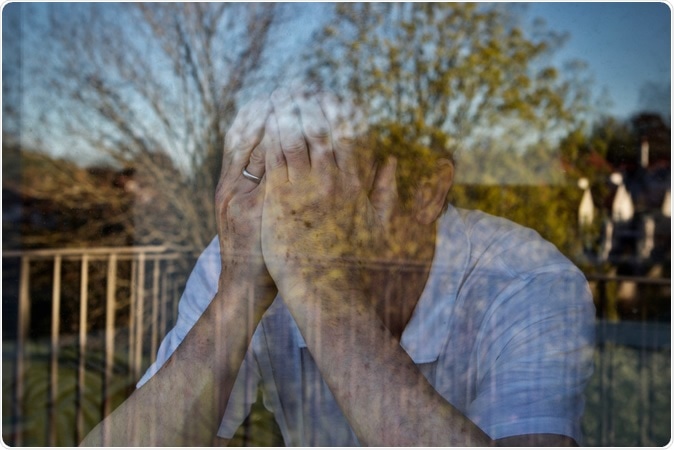With all the news about the coronavirus disease (COVID-19) pandemic circulating online, stress levels are rising. Most countries that are shaken by the virus outbreak have imposed lockdowns, in attempts to curb the disease spread.
The virus has touched all continents, but Antarctica and the death toll has reached more than 9,800. Across the globe, the number of infected people surpassed 242,000, according to Johns Hopkins University (JHU).
Most people, especially those who are older than 60, and those with underlying health conditions or pregnant women are advised to practice social distancing and isolation, leaving them alone at home or confined in their rooms.
All of these factors contribute to heightened anxiety and stress levels. Anxiety is projected to affect 264 million people across the globe and is more common in women than in men.
During these times, how can one stay positive and manage anxiety and stress properly?

Image Credit: J K Daylight / Shutterstock
What the government recommends
The United Kingdom government has issued advice for those struggling with their mental health amid the coronavirus outbreak.
It is crucial to take care of one’s mind, as well as the body in these trying times. Getting the needed support is essential, and people can do this by connecting and staying in touch with family members and friends through phone calls and social media platforms.
Those who are confined to their homes can focus on reading, online classes, cooking, and watching films. For those not feeling well due to stress, performing light exercise at home can help reduce anxiety.
“Many people find it helpful to remind themselves why what they are doing is so important. Hopefully, none of your family will suffer more than flu-like symptoms. But some people are badly affected by a coronavirus, and particularly the elderly and those with certain medical conditions. By staying home, you are protecting the lives of others, as well as making sure the NHS does not get overwhelmed,” the government spokeswoman said.
How to handle stress?
As the world grapples with COVID-19, more people experience distressing events. Some may have relatives who tested positive. Some may be persons under investigation themselves, while others worry about the extended lockdowns affecting their income. In poorer countries, the lockdown has left many families hungry and out of money to stock up on necessities.
To stay positive and to reduce stress levels, it is crucial to take steps to protect one’s mental health during the global pandemic health crisis.
Limit social media exposure
Though social media has helped connect people from across the globe and provided useful information on what is going on, it also contains misinformation or depressing news that may trigger anxiety and panic. People can subscribe to just one or two reputable sources of information or news websites. Further, they can turn off their notifications once in a while to prevent worrying that the beep of the phone means more bad news.
Be preoccupied
There are many ways to let your mind wander away from the chaos and panic over the coronavirus disease. Though it is vital to be updated, make sure you are preoccupied now and then. Reading, watching films, crafting, creating something, cooking, or spending time with the family can all help alleviate stress, anxiety, and panic during this trying time.
Strengthen connections
It is the perfect time to reach out to old friends, family members, and acquaintances over social media platforms. For those in lockdown or quarantined, this is an excellent opportunity to spend quality time with loved ones and communicating with those in other places by phone or the internet. Long conversations with partners, children, and loved ones are also self-assuring and nerve-calming. Though hugging and kissing are not recommended during this time, letting others know how much you love them is essential during this time.
Feeling stressed and anxious is understandable in times of calamities or global crises. The most important thing to do is to take care of one’s physical and mental health, since having a breakdown will add to the burden of the situation, especially that hospitals and healthcare facilities are groaning with the increasing number of patients.